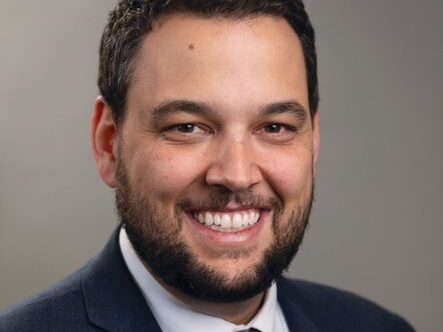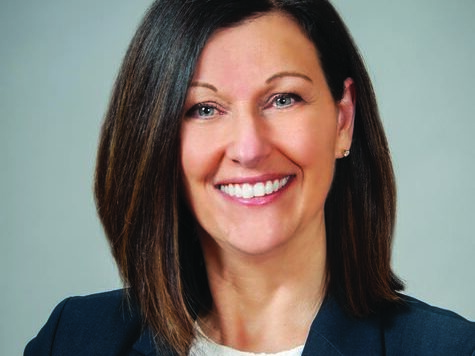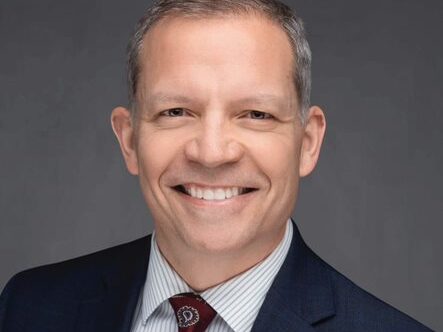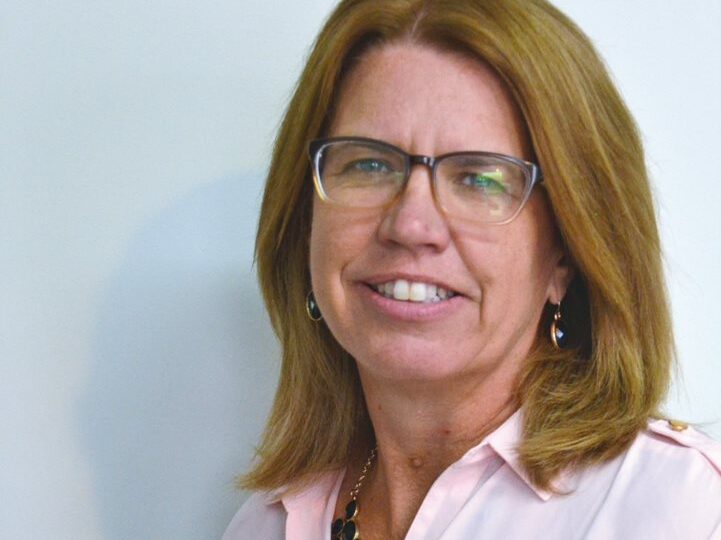
Controversial new bill proposes vouchers for all
By Terry Troy
The scenes on cable news are becoming all too familiar: irate parents confronting their local school boards over a host of issues. Take your pick: mask or vax mandates, critical race theory or teaching transgenderism in grade schools among others.
Then, in October, the Ohio Department of Education released its 2020-2021 Ohio School Report Cards. Due to continued challenges caused by the COVID-19 pandemic, this year’s report cards, like last year’s, do not contain overall grades, instead focusing on data such as enrollment, school operational details, graduation rates and other success indicators.
While the move is in keeping with legislation passed earlier this year, it’s still kind of like handing out participation trophies. And the results are not at all satisfactory. Of the 611 school districts in our state, only eight improved their performance index scores.
Naturally, parents are angry—and who can blame them?
“What we’re seeing is that more families, more parents, are showing up at school board meetings,” says Aaron Baer, president of the Center for Christian Virtue, headquartered in Columbus. “We have had a year and a half of government shutdowns of schools, along with debates around critical race theory and sexuality issues like transgenderism in schools—things that are being forced upon our children. So more families than ever before are considering alternatives. Unfortunately, we have a system in Ohio that for many students, traps kids in a one-size fits all environment.”
But maybe not for long.

A new bill introduced by State Representatives Marilyn John (R-Shelby) and Riordan McClain (R-Upper Sandusky) along with a sub-bill introduced by the aforementioned Center for Christian Virtue (CCV), may give concerned parents an option to opt out of our state’s public school system.
According to its supporters, the Backpack Bill (HR290) allows families to choose the educational option that best meets their needs by ensuring that every child in the state is eligible for a scholarship to attend the K-12 school of his or her choice. Introduced as a “Legislative Intent Bill” in May, the sub-bill contains new language based on the funding formula included in the state budget this past summer.
“Parents, not government bureaucrats, know what’s best for their kids,” says the CCV’s Baer. “As parents across America awaken to a harmful curriculum that is being forced on kids in public schools across Ohio, the demand for the Backpack Bill grows.
“Now is the time for the General Assembly to act.”
And the General Assembly is likely to act, given its Republican majority.
“We have a governor who has been very friendly to school choice, and a lieutenant governor who was champion of the first school choice program while he was speaker of the [State] House,” says Baer. “So our goal is to get this done this General Assembly.”
According to Baer, and other proponents of the legislation, the Backpack Bill empowers families.
“Essentially, there are three parts of funding student education in our state,” says John. “There are local levies, a state formula and a federal portion. When you look at how much it costs to educate a student, it varies by district. What the Backpack Bill will take is just the state portion of that funding, not the local levies or the federal funding. Then the family can decide that maybe something besides public education is best for their child’s needs.”
So the Backpack Bill basically broadens our state’s current voucher program, which was strengthened in the state budget this past summer, says John.

“So we feel like now is a good time to allow any student, any family to make that choice,” John adds. “It shouldn’t depend on what your zip code is or how much money you make or which public school district you live in, if you feel your child would be better suited for home schooling or private education, that’s a decision you should have the ability to make and your state tax dollars would go toward that.”
So the money basically follows the student.
On the surface, it sounds like a very equitable proposition. However, the bill does have its detractors. And those naysayers do have Constitutional law on their side, both at the state and federal level. The First Amendment of the U.S. Constitution creates a wall of separation between church and state with the phrase, “Congress shall make no law respecting an establishment of religion, or prohibiting the free exercise thereof.”
The U.S. Court of Appeals struck down a voucher statute in Simmons-Harris v. Zelman because it violated the so called “Establishment Clause” of the First Amendment. A part of the ruling held that parents received funds that mostly benefitted religious schools.
In Ohio today, we currently have something called the EdChoice Scholarship Program, which provides students from designated public schools the opportunity to attend participating public schools. Now, the group that successfully argued in the past that Ohio’s public school system was unconstitutional will head back to court to eliminate the EdChoice private school voucher system.
Bill Phillis, executive director for the Ohio Coalition for Equity and Advocacy of School Funding, thinks the continuance and expansion of EdChoice vouchers leaves education in the state as an unconstitutional and inaccessible system.
“The state legislature is responsible for a thorough and efficient system of common schools throughout the state,” says Phillis. The phrase “thorough and efficient” being a direct reference to DeRolph v. State of Ohio, which ruled that the state’s funding model for public schools relies too heavily on property wealth and doesn’t allow for equal access to education.
Obviously, Phillis is opposed to the new Backpack Bill, and says the coalition will head to court if it’s passed. Similarly, teachers’ unions are also opposed.
“This is something that has been a part of the political debate for some time,” says Scott DiMauro, president of the Ohio Education Association, the largest labor union and largest education advocacy organization in the state. “Voucher schemes like the one proposed in the Backpack Bill are just a more extreme version of legislation that has been around for the past 30 years.

“The fact the Center for Christian Virtue is one of its leading proponents puts a spotlight on what their motivation really is. They are looking to use taxpayer dollars to promote their religious interests, and that is unconstitutional.”
The other major teachers’ union is also opposed.
“Ohio parents and students overwhelmingly want quality local public schools; they don’t want the radical defunding of public schools that this bill would likely cause,” says Melissa Cropper, president of the Ohio Federation of Teachers. “According to the Ohio constitution, legislators must fully and fairly fund a public school system. Last year they finally took a huge step forward to meeting this constitutional responsibility by passing a short-term Fair School Funding Plan, but passage of this new bill would negate that progress and drain our public schools of the resources they need to provide a quality education.

“Proponents of this bill call it a ‘Backpack Bill,’ but in reality it is a ‘vacuum bill,’ which would suck up public funding and put in the pockets of unaccountable private entities.”
But couldn’t it be argued that the unions are only interested in maintaining their power? That the so called “Backpack Bill” might take away enrollment and thus jobs from public schools transferring them to a non-union environment?
“That’s a diversion away from the real impact of this bill—defunding the public schools that 90% of Ohio students attend,” answers Cropper. “Teachers and school staff are on the front lines fighting for well-funded public education because we see the impact that chronic underfunding has on our students—larger class sizes, outdated textbooks and technology, dangerously neglected buildings, and fewer art, music and foreign language elective classes.”
The unions have other concerns about the Backpack Bill that go beyond the separation of church and state. There are also concerns over educational accountability, oversight and possible malfeasance.
“Every one of the 611 school districts in our state has a board that is elected by the people of the community and is responsible for providing a quality education for the children of the community,” says DiMauro. “[School boards] are held accountable to the voters every four years through elections.
“However, there is zero public accountability for private schools, unlike public schools, which are subject to audits and physical oversight by the state as well as local school boards. The Backpack Bill, the way it is introduced, could cost well over a billion and a half dollars if you provide every kid in the state with a voucher. How the taxpayers of Ohio would tolerate that—with no accountability for the way the money is being spent—I don’t know.”
There have been some historical precedents with malfeasance in private education, including the recent Bishop Sycamore scandal and the failure of ECOT (Electronic Classroom of Tomorrow). This proposed bill also covers home schooling. Doesn’t that open the door to further malfeasance? Let’s face it, not all parents are altruistic.
“This bill allows for that by bringing in the State Treasurer’s office,” answers John. “There is an auditing function within the bill.
“We are not looking for malfeasance to happen, but we also think that there needs to be oversight. That is why money is not going directly to families or students, it will be set up in an educational savings account, through the State Treasurer, and will be audited by the state by that office.”
Opportunities for private and home schooling already abound, argue Backpack Bill opponents.
“If families want to home school their child and not have them enrolled in the public school system, they have every opportunity to do so,” says DiMauro. “If a family wants to send their kids to religious school, they have every opportunity to do that. In fact, private schools raise money through their endowments and scholarship all the time.”
But what about the Christian student who objects to mask and vax mandates or some of the other controversial topics now being taught in public schools today? Won’t they be isolated if they object on religious grounds?
That’s an issue that will probably be answered in the courts.
With the current political climate in Columbus, it is likely that the Backpack Bill will pass. It’s even more likely that teachers’ unions and religious organization will head to court over the Establishment Clause of the First Amendment.
But remember, most court cases are decided on the first part of the Establishment Clause which deals with the establishment of a religion. There is a second portion of that clause, often unargued by legal eagles, that includes “or prohibit the free exercise thereof.”
It will be interesting to see how this one tumbles out.



